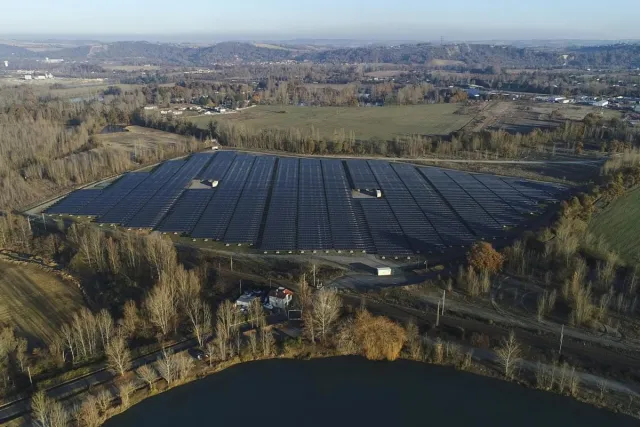Why are prices rising in France’s utility-scale PV tenders?
Aug 8, 2019 01:55 PM ET
- Earlier this week, the French government published a list of winning projects for the sixth round of its tender for large-scale solar. There were a few changes from the preceding round, with French companies such as Urbasolar, Engie and Total consolidating their positions. However, even though a higher number of projects were submitted, prices increased slightly in the end. In a short conversation with pv magazine, Xavier Daval — a representative of SER, the French renewable energy association — explained the reasons for this.

“We are in a dynamic development of large projects,” said Xavier Daval, a representative of French renewable energy association SER and the chief executive officer and president of KiloWattsol SAS.
The volume of submitted projects submitted for the tender has grown from 952 in the fifth round to 1,107 MW in the sixth round, with about 850 MW of capacity allocated for each round. However, final prices are still increasing, with the average price for round six reaching €64 /MWh, from €63/MWh in the previous round.
“Why? Well, it is very likely that the reasons for the increase are structural,” Daval told pv magazine. “We have to take into account the evolution of the dollar’s price, which has been increasing for six months, which has a great influence on transactions, the rise in the price of modules, and the results of tenders in Germany.”
Daval also noted that about 40% of the projects are located outside the major regions of southern France. In less sunny regions, the cost per kWh is higher. “Cheap southern projects are disappearing, which inevitably increases the cost per kWh of projects,” he said.
Around 71% of projects ranging in size from 5 MW to 30 MW and nearly 78% of projects with capacities between 500 kW and 5 MW are to be built on degraded land. “This satisfies a desire of the government, but these facilities generate very heterogeneous operating costs which depend on the land and its actual state,” Daval explained.
Some companies also have to grapple with administrative complexities. For example, the cost of abandoned or slow projects can have repercussions on selected installations.
Daval attributes the increase of the MWh price for the submitted projects to these factors. He urges developers not to follow the recommendations of the French Energy Regulatory Commission (CRE), which wants to lower the ceiling price to prevent some projects from being submitted again to later sessions, for example.
The winners
Financial consulting firm Finergreen has ranked the winners of the fifth round. Its list shows that the market leaders have consolidated their positions. Just as they did in round five, Urbasolar and Total continue to occupy first and second place, with 146 MW and 117 MW, respectively. Together with third-place Engie, they account for nearly half of the selected projects.
The same trio – Engie, Urbasolar and Total – tops the volume rankings for the sixth round of the tender, with 703 MW, 467 MW and 408 MW of assigned projects, respectively. “Urbasolar ranks second with nearly 467 MWp in total, including nearly a third in the last and half in the last two,” said Finergreen. “We note that the top 10 represents 2,599 MWp, or 2/3 of the 3,651 MWp that were awarded in the six rounds cumulatively,” adds the consulting firm.
Daval also sees tenders for large-scale PV attracting more foreign players, such as Germany’s Enerparc, Kronos Solar and Energiequelle.”These are seasoned foreign companies who know how to build at a lower cost,” he said, noting that they are new competition for French players.
Also read

